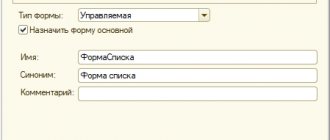Statements by government agencies about reducing pressure on business and reducing the number of control measures against companies do not negate the possibility of a tax audit of a specific organization or individual entrepreneur.
The article talks about what types of inspections may be carried out by the Federal Tax Service, who is at greater risk of encountering an auditor than others, and how to prepare for such an inspection. Advice from expert practitioners will help you pass the audit with minimal loss of finances and nerves, and, if necessary, defend your rights and reduce the burden of sanctions based on the results of the audit.
How to prepare
First of all, you need to know by what criteria a company may come under suspicion from the tax authorities. The concept of planning inspections is reflected in the document approved by order No. MM-3-06/333 of 05/30/07 of the tax service.
The risk of inspection increases if:
- the wage level is below the regional minimum or barely covers it, and the average is 10% lower than the industry level;
- the company showed losses for the year;
- the company changes its legal addresses and registers with different Federal Tax Service;
- the percentage of accrued (paid) taxes is below the average in this region (economic sector);
- the VAT return reflects a large amount of deductions;
- tax return data differs sharply from cash flow data on the current account (payment for purchases, sales receipts), etc.
In practice, one of the factors named in the document is enough for the Federal Tax Service to find grounds to inspect the company.
Next, it makes sense to view information on the upcoming inspections on the Federal Tax Service website in advance before the start of the new calendar year. An unscheduled audit cannot be ruled out, for example, based on information from other government agencies, information from the tax office from the company’s competitors, if the already mentioned risk factors are identified in the current year.
Before conducting any audits, it is useful to study the tax code. Tax audits, according to Art. Art. 87, 88, 89 of the Tax Code of the Russian Federation, there are two types: field and desk. The first are carried out on the territory of the inspected company, and in the second case there may be a requirement to send the package of documents specified in the notice to the Federal Tax Service. “Cameralka” cannot be unscheduled, since it is usually carried out after the taxpayer has filed a return. In addition, there is also the concept of counter verification, officially called “request for documents” or information about the counterparty, the business partner of the company.
A desk audit is carried out without additional decisions. And if within 3 months after filing the declaration no signals were received from the Federal Tax Service, it means that it ended successfully. The taxpayer cannot prepare for such an audit in the generally accepted sense.
An on-site inspection involves the mandatory requirement of documents. You need to be prepared for this. Officials may require any documents related to the scope of the inspection. The on-site inspection itself lasts 2 months, but can be suspended (resumed) or extended for reasons specified in the Tax Code of the Russian Federation. The total duration of this type of control is no more than six months.
Before you start you need to have time:
- check the identity of the primary documentation of the company and contractors;
- notify business partners about the audit of the company so that they can confirm all data if necessary;
- leave in the office only those documents that are executed correctly and are legally legal;
- remove, if necessary, discrepancies between the legal address and postal address and the actual location of the company;
- instruct staff on behavior during an inspection, on the need to answer the inspector’s questions clearly and to the point, without unnecessary information;
- if possible, provide the Federal Tax Service employee with a separate office and bring the required documents there.
Extension of the deadline for submitting documents
If an organization knows in advance that it will not have time to submit the required documents within 10 days (for example, due to a large number of documents requested by the inspection), then it can apply for an extension. To do this, within the day following the day of receipt of the request for the submission of documents, the organization should send a written notification to the inspectorate about the reasons why it does not have time to submit the documents within the prescribed period. In addition to the reasons, the notification must indicate a specific period within which the organization will be able to fulfill the requirement. This is stated in paragraph 2 of paragraph 3 of Article 93 of the Tax Code of the Russian Federation.
On the basis of such a notification, the head of the inspection (his deputy) may extend the deadline for submitting documents or refuse an extension, on which he will make a separate decision. The form of such a decision was approved by order of the Federal Tax Service of Russia dated May 8, 2015 No. ММВ-7-2/189. The decision must be made within two working days from the date the inspection receives a notification from the organization. This follows from the totality of the provisions of paragraph 3 of paragraph 3 of Article 93 and paragraph 6 of Article 6.1 of the Tax Code of the Russian Federation. The decision to extend the deadline for submitting documents (refusal to extend) can be transferred to the organization via telecommunication channels in the Procedure approved by Order of the Federal Tax Service of Russia dated February 17, 2011 No. ММВ-7-2/169.
Advice: the inspection may not satisfy the organization’s request to extend the deadline for submitting documents (refuse or ignore it). If the inspection subsequently holds the organization accountable for late submission of documents, then the court may recognize such an appeal either as a mitigating circumstance or as a circumstance excluding the organization’s guilt in the offense. With this outcome of the case, the amount of the fine for late submission of documents provided for in Article 126 of the Tax Code of the Russian Federation should be reduced by at least two times or eliminated altogether.
How to proceed during the inspection
During the audit, for example, if, during a camera examination, shortcomings were discovered in the declaration, the tax office may request a package of documents in the form of their copies.
Documents must be provided within 10 days of receiving the request. When requesting documents from a foreign organization, the submission period is 30 days, if we are talking about a consolidated group of taxpayers - 20 days.
Starting from this year, the package must be drawn up in accordance with order No. ММВ-7-2/628 dated 07/11/18 of the Federal Tax Service, from 04/01/19 - according to the new rules:
- The thickness of the stitching is no more than 150 sheets. If one document is more than 150 sheets, it is not divided. Page numbering is continuous, starting from 1.
- The firmware must ensure unhindered reading and copying of documents without violating the integrity of the volume. The ends of the firmware should be on the back of the volume, covered with a paper sticker. The dimensions of the sticker are not specified.
- The certification signature must be on the sticker only. Each sheet does not need to be certified. It consists of the name of the position (or an indication that this is an individual entrepreneur) and the name of the responsible person with initials, the number of sheets, and the date.
- The accompanying document (letter) is attached to the stapling. It contains the date and number of the request from the tax office and the number of sheets of copies to be submitted. The list of documents is drawn up on a separate sheet or included in the text of the letter.
During a desk audit, the tax office may also send a request to clarify the information in the declaration or make changes to it. Within 5 days, the taxpayer must either send clarifications (by mail, in person, via the Internet, using an electronic signature), or submit a “clarification” on the tax.
The transfer of documents during the counter inspection is formalized as indicated above. Within 5 days, the taxpayer must submit copies of the “primary” documents (invoices, acts, invoices, etc.) to the tax office or confirm in writing that he does not have such information (Article 93.1-5).
On a note! If the tax office checks a transaction with a partner outside the framework of a general audit, the documents are provided within 10 days (Article 93.1-5).
Of all the above, the on-site inspection is the most serious. Its results largely depend on how the company's management and employees behave. First, let's talk about what you shouldn't do during an on-site inspection:
- Do not prevent inspectors from entering the company's territory. The situation may lead to police intervention and additional sanctions.
- You should not go into open conflict with officials doing their job, hoping that they will “go away faster.” This will only lead to the conclusion that the check will be carried out even more thoroughly.
- Do not rush to submit amended returns if they contain errors. Inspectors may not notice them (the human factor has not been canceled). The time to conduct an inspection is limited by law. Even if these particular shortcomings are discovered, their registration will take a certain period of time, which means there may not be time left to detect other violations.
- Do not voice information about which the inspector does not ask questions. Any information inconsistencies can be used against the company in the same way as outright false information.
On a note! If the tax office requests the same documents repeatedly, they may not be provided. In this case, it is necessary to notify the Federal Tax Service that such documents have already been sent within 10 working days.
Correct actions during an on-site tax audit are the key to its speedy and successful completion for the company. They need to be discussed in more detail.
Document submission methods
The organization must submit the documents requested by the inspectorate during the on-site tax audit:
- on paper (in the form of copies or originals, depending on how specified in the requirement);
- in electronic form (if the documents requested from the organization are compiled in electronic form in established formats).
This is stated in paragraph 2 of Article 93 of the Tax Code of the Russian Federation.
The procedure for submitting documents in electronic form (via telecommunication channels) was approved by order of the Federal Tax Service of Russia dated February 17, 2011 No. ММВ-7-2/168. Electronic formats of individual documents have also been developed, which can be used by organizations both in business activities and when submitting documents at the request of the inspection in electronic form. In particular, by orders of November 30, 2015 No. MMV-7-10/551 and No. MMV-7-10/552, the Federal Tax Service of Russia approved electronic formats:
– document on the transfer of goods (TORG-12);
– act of execution of work (rendering of services).
On-site inspection: 10 rules for success
- Before starting the inspection, ask officials for their official IDs and the decision of the head of the Federal Tax Service (the person replacing him) to conduct the inspection. All officials who presented you with documents must be included in the text of the decision. Along with fiscal employees, the group may include representatives of the police. Keep in mind that they have broader powers, for example, the ability to legally inspect the territory and premises of the company, its vehicles, staff interviews, seizure of documentation (Article 91-1, 36-1 of the Tax Code of the Russian Federation, Federal Law-144 dated 12/ 08/95).
- Limit inspectors' access to documents other than those related to the scope of the inspection, the inspection period, and the range of issues that are the subject of the inspection. This information is indicated in the decision to conduct verification activities.
- Before being handed over to the inspector, all documents must be reviewed and verified by company employees. It is quite possible that it will be possible to correct technical errors made during their registration.
- When submitting documentation for verification, be sure to make an inventory and accept it in the same way - according to the inventory. Transfer without observing these rules risks the loss of documents that serve as evidence of the company’s legal actions.
- It is inappropriate to provide an official with free access to accounting computer programs for maintaining records, or to allow him to access the general accounting information base. It is better to print the required single document yourself. If the inspector insists, the decision remains with the management of the company, but, according to Art. 93 of the Tax Code of the Russian Federation, the taxpayer has no obligation to provide access to electronic databases.
- It is better for the manager to prohibit the discussion of work issues in an informal setting by employees during the inspection. For direct contact with members of the commission, it is necessary to identify competent employees, for example, the chief accountant, deputy director, in addition to the director himself. Ordinary employees should answer questions as briefly and loyally as possible.
- Competent protection of one's own interests based on legislative norms allows one to eliminate the likelihood of manipulation on the part of the inspector and the search for “weak points” in the taxpayer’s position.
- Even competent specialists from the Federal Tax Service may make mistakes or may not know all the judicial practice on a particular issue related to the subject of the audit. In some cases, it is advisable not to challenge the interpretation of legal norms by fiscal officials, but to file a claim in court upon completion of the audit and win it.
- Attempts to “come to an agreement” with the inspector using a bribe, or to establish informal relations with him, as a rule, harm the image of the company and lead to negative consequences. It is advisable to record the entire inspection process on video and audio media.
- The director or other employee may be interrogated during the inspection (Article 90 of the Tax Code of the Russian Federation). It is better to think through this possibility, answer the officials’ questions in advance, not avoid it, but calmly answer all questions. Remember your constitutional right to obtain legal assistance (Article 48 of the Constitution).
After graduation
Based on the results of a tax audit, additional taxes may be assessed, fines and penalties may be calculated. If the taxpayer does not agree with the decision of the fiscal authorities, he has the right to file a claim in court. The practice of court decisions shows that about 50% of such claims are satisfied.
Active protection of one’s own interests (for example, an assessment by alternative experts of a transaction for which the Federal Tax Service has assessed additional taxes) is more effective than passively waiting for a court decision.
The taxpayer has every chance to protest the results of a fiscal audit if the inspectors violated the law in at least one point. For example, one of the officials was not included in the decision to conduct an inspection, or the officials violated its deadlines.
The most important
- Tax audits are divided into desk and field audits. The procedure of “counter inspection” is close in meaning to them, when they check not the company itself, but its counterparties. The most difficult to pass is the on-site inspection, which is usually carried out on the taxpayer’s territory. For any type of audit, the tax office may request documents from the company. They must be provided within 10 days. The stitching must be completed correctly to avoid a fine.
- When meeting inspectors who have arrived for an on-site inspection, it is necessary first of all to check their documents and the decision to conduct an inspection. During this process, it is better to appoint a group of responsible employees to contact officials, allocate a separate room for the inspectors, and record the progress of the inspection on audio or video.
- Documents are provided to inspectors according to the inventory.
- The results of the audit can be challenged in court if members of the commission committed violations of tax laws during its conduct.






